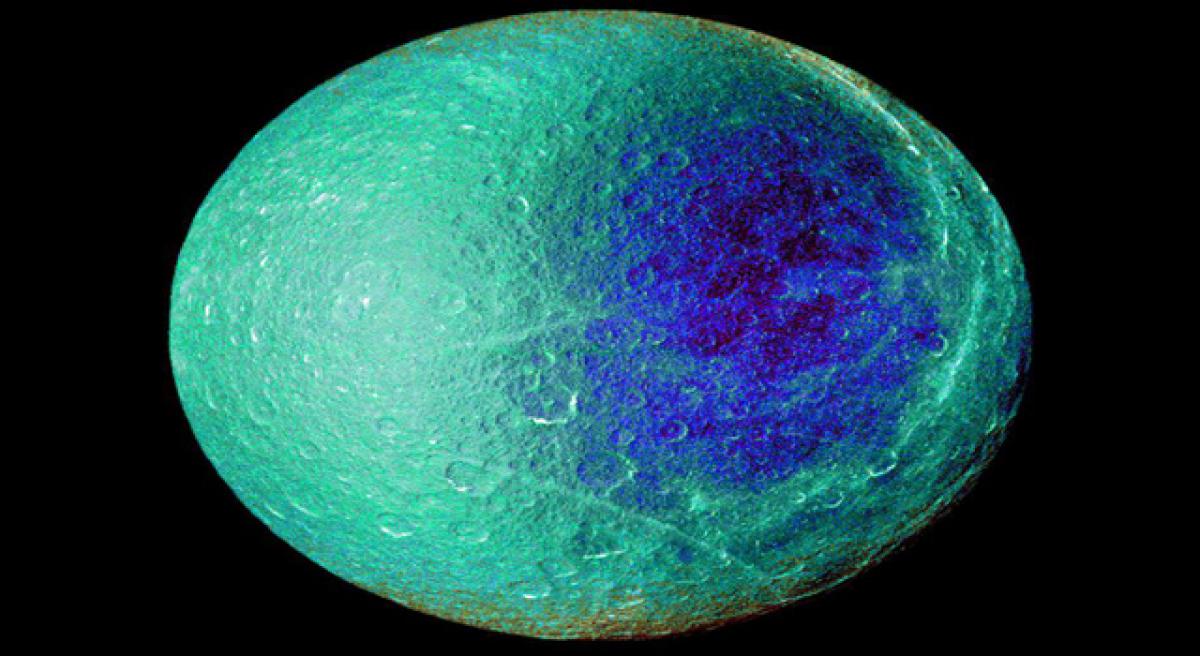Life could exist on Saturn's biggest moon Titan

Liquid water is a requirement for life on Earth. But on Saturn\' s largest moon Titan, life might exist beyond the bounds of water-based chemistry, according to a new study by scientists at Cornell University.
Los Angeles: Liquid water is a requirement for life on Earth. But on Saturn' s largest moon Titan, life might exist beyond the bounds of water-based chemistry, according to a new study by scientists at Cornell University.
Reporting in the latest issue of the Proceedings of the National Academy of Sciences, the researchers look at the presence of hydrogen cyanide (HCN) in the planet' s atmosphere and speculate that it could become a possible prebiotic chemical key, Xinhua reported.
Prior studies indicated that on Titan's surface, HCN can react to form long chains, or polymers, one of which called polyimine. Now by using computer models and data collected by the NASA's Cassini and Huygens mission, researchers have revealed that under Titan-like cold environmental conditions, polyimine is flexible and can absorb the sun' s energy and become a possible catalyst for life.
Titan is a very cold place. Instead of water on the surface, it is filled with liquid methane and ethane. Its dense atmosphere, a yellow haze, is full of nitrogen and methane. When sunlight hits this toxic atmosphere, the reaction produces hydrogen cyanide.
"We are used to our own conditions here on Earth. Our scientific experience is at room temperature and ambient conditions. Titan is a completely different beast," said Martin Rahm, postdoctoral researcher in chemistry at Cornell University and lead author of the study. "So if we think in biological terms, we' re probably going to be at a dead end."
Still, Titan and Earth have important traits in common. Despite its seemingly inhospitable climate, Titan features terrain with Earthlike attributes such as lakes, rivers and seas. These liquids fall as rain and affect geology through erosion.
"This paper is a starting point, as we are looking for prebiotic chemistry in conditions other than Earth' s," Rahm said. "We need to continue to examine this, to understand how the chemistry evolves over time. We see this as a preparation for further exploration."
Source: IANS














